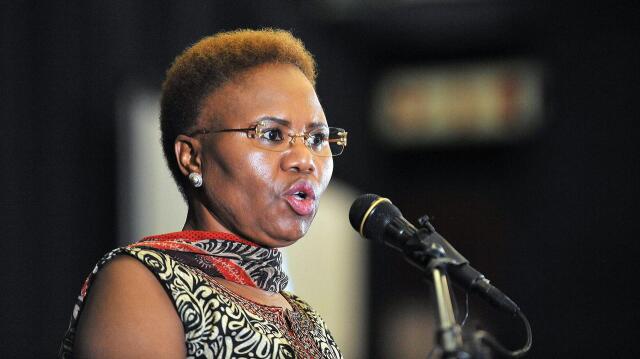Economists and political analysts are outraged at plans by Social Development Minister Lindiwe Zulu to introduce a compulsory National Social Security Fund (NSSF), that will force employers and employees to contribute up to 12% of their salaries and wage bill.
Social Development Minister Lindiwe Zulu said contributions to the pension and risk-benefit components of the NSSF would be pooled, sharing risk across all contributors.
Cape Town – Economists and political analysts are outraged at plans by Social Development Minister Lindiwe Zulu to introduce a compulsory National Social Security Fund (NSSF), that will force employers and employees to contribute up to 12% of their salaries and wage bill.
Introducing the Green Paper after the Cabinet approved it, Zulu said there would be a mandatory pension payroll contribution worth between 8% and 12% of earnings to be met by employees and employers, once the NSSF is entrenched.
She said contributions to the pension and risk-benefit components of the NSSF would be pooled, sharing risk across all contributors.
Political economy analyst Daniel Silke said: “The big problem is that the expectations of delivery from the State are so poor and its credibility and management capacity are so poor that asking South Africans to contribute in this way is fraught with great risk from the point of view of those South African salary earners who will be expected to contribute.
“It really is a case where the state cannot mandate this kind of contribution into this kind of set up unless it really has proven itself to be an effective and efficient manager of large scale state assets and not a waster of resources through inefficiencies and graft and corruption.
Economist Dawie Roodt said: “The Green Paper is all well and good, but we can’t afford it.
“The downside is that it proposes a substantial increase in taxes and this is not going to happen as the South African taxpayer is already overburdened. As these things go, it will probably be under the control of some politician and most likely be mismanaged.
“The bottom line however is that a Green Paper is a preliminary proposal and as such more of a discussion paper and not set in stone,” said Roodt.
Political analyst Ntsikelelo Breakfast said: “The interesting thing is that when the Finance Minister delivered his Budget speech, the business community was not taxed that much.
“Some people are saying that if we want to increase revenue then we must tax the rich, generate funds out of that and then respond to the challenges of helping the poorest of the poor..
“The antithesis of that is that if you tax businesses more, you will scare them away,” said Breakfast.
Reuben Maleka, of the Public Servants Association (PSA), said given the ongoing corruption and embezzlement of money in the country, the PSA would do all it could to stop the plans to establish another entity that politicians would loot without shame.
“The PSA regards this proposal as another attempt by the government to get its hands on overtaxed workers’ hard-earned money.
“Government could not even honour the 2018 public service wage agreement and yet expects its employees to buy into these plans that will erode their income even more.”
Maleka said that the matter related to retirement reforms are the responsibility of the national treasury and was not part of the mandate of the Department of Social Development, whose focus should be on social grants.
Meanwhile trade union Solidarity has said it would fight the Green Paper in court if it becomes formal legislation.
Solidarity chief executive Dirk Hermann said: “South African employees are already overtaxed and tired of paying more taxes for fewer and fewer services.
“Apart from the new tax proposals, the tax rate is already high, and ordinary people have to incur expenses for which they are already taxed. On top of that, tax money is still looted at a large scale,
“It is time for taxpayers to realise their power and to stand up against a government that does less and less, but wants to take more and more. We refuse to see how workers become slaves of the State. We are not working for the government; the government works for us,” said Hermann.
Legal and Investigations head at Corruption Watch Karam Singh said: “Corruption Watch welcomes progressive policy proposals that will lead to the eradication of poverty and inequality in South Africa.
“A major threat to the realisation of these policy proposals, as has been the case in relation to the realisation of basic socio-economic rights over the last 27 years, as enshrined in the Constitution, is corruption.”








